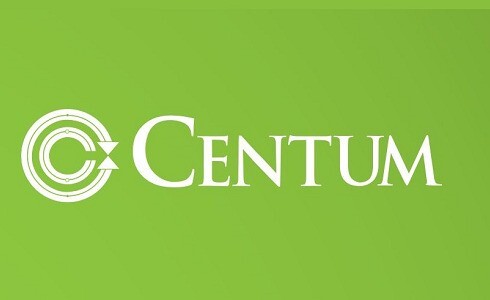Imagine spending hours every day entering contact details, chasing leads, and updating spreadsheets only to watch opportunities slip through the cracks. It’s holding your team back from doing what they do best: closing deals and building relationships. The good news? There’s a smarter way to work.
By using automation and AI tools, you can cut through the clutter, save time, and help your team focus on what really matters: growing your business and boosting your bottom line.

Understanding What CRM and Automated Systems Are
What is CRM fundamentally? Think of Customer Relationship Management as your business’s master strategy for handling every interaction with existing and prospective customers. Traditional CRMs are basically contact databases that still demand tons of manual work.
An automated crm is a customer relationship management system that streamlines and automates routine tasks such as lead tracking, follow-ups, data entry, and customer communication. No more typing up call notes after every conversation, the system grabs those details instantly. Forget about setting reminders for follow-ups; smart triggers launch based on what your customers actually do.
How Automated CRM Systems Actually Work
Here’s where things get interesting. These platforms run on intelligent workflows that watch customer behavior like hawks. Someone grabbed your pricing sheet? Boom – they’re automatically enrolled in your nurture campaign. A prospect opens three emails in seven days? The system flags them as hot leads without you doing anything.
You establish the ground rules once, then sit back while the software executes flawlessly every single time. No more missed tasks or inconsistent follow-through.
Key Differences From Traditional Approaches
Old-school CRM systems? They’re completely dependent on your team remembering stuff and actually doing it. With automated crm technology handling everything, you wave goodbye to human mistakes and unreliable processes, creating smooth data flows across every customer interaction point.
Traditional platforms show you yesterday’s news. Automated solutions? They’re crystal balls that predict tomorrow’s outcomes and actively work to shape them in your favor.
Revolutionary Benefits of Automated CRM for Modern Businesses
The benefits of automated CRM go way beyond just saving time. We’re talking about fundamentally reshaping how your entire operation functions, building competitive edges that snowball over time.
Boosting Sales Team Performance
Watch sales productivity skyrocket when busywork disappears completely. CRM automation for business means your star performers spend time nurturing relationships instead of wrestling with data entry. Lead scoring happens in real-time, directing teams toward prospects with the highest conversion probability.
Pipeline management becomes ridiculously easy. Deals advance through stages automatically based on customer actions. Your forecasting accuracy improves dramatically because the system captures every single interaction consistently.
Transforming Customer Experience
Customers experience personalized service at a massive scale through automated crm systems that remember every conversation, preference, and purchase across all touchpoints. Support representatives access complete customer histories instantly, solving problems faster than ever.
Response times drop from hours to mere minutes. While your competitors fumble with delayed responses, your system fires off immediate confirmations and relevant information automatically.
Streamlining Marketing Operations
Marketing campaigns launch based on actual customer behavior rather than random calendar dates. This productivity surge comes largely from automated nurture sequences and precise behavioral targeting.
Email campaigns adjust to individual engagement patterns. High-potential prospects receive premium content while others get educational materials. A/B testing runs continuously, optimizing performance without any manual babysitting.
Implementation Strategies That Actually Work
CRM automation for business success hinges on smart implementation. Rush the process and you’ll end up with frustrated teams and abandoned systems gathering digital dust.
Planning Your Automation Journey
Map out your current workflows before automating a single thing. Document every step from initial lead contact through closed deals. Target the most time-consuming repetitive tasks first; these give you the biggest bang for your buck.
Select automation rules that solve genuine problems. Don’t try automating everything simultaneously; zero in on high-impact areas where manual work creates serious bottlenecks.
Training and Adoption Best Practices
Your team needs to see how automation empowers them, not threatens their jobs. Share specific examples of time savings and improved results. Address job security worries by emphasizing how automation elevates their roles to more strategic, valuable work.
Roll out gradually with pilot programs. Let early adopters become your internal champions who drive organization-wide acceptance.
Industry-Specific Applications and Advantages
Different industries experience distinct CRM software advantages based on their unique challenges and customer interaction styles.
E-commerce and Retail Success Stories
Online retailers deploy automated abandoned cart sequences to recapture lost revenue. Inventory-triggered campaigns alert customers when coveted products come back in stock. Seasonal promotions launch automatically based on purchase patterns and weather conditions.
Professional Services Automation
Consultants and agencies automate project milestone communications seamlessly. Client onboarding sequences deliver consistent experiences regardless of which team member manages the account. Contract renewal alerts trigger months before expiration dates.
Healthcare and Financial Services
These heavily regulated sectors benefit enormously from compliance-focused automation. Patient follow-up sequences maintain care continuity. Financial advisors get notifications when clients approach major life events requiring service adjustments.
Future-Proofing Your CRM Investment
Emerging Technology Integration
Artificial intelligence amplifies predictive power exponentially. Voice recognition automates call logging effortlessly. Blockchain technology secures customer data while maintaining seamless accessibility.
Scalability Planning
Choose your automated crm platform with growth in mind – it should expand effortlessly as your business scales. Today’s scrappy startup becomes tomorrow’s enterprise powerhouse. Your system should handle increased data volumes and user counts without performance hiccups.
Modern platforms integrate beautifully with emerging technologies. IoT devices deliver customer behavior insights. Augmented reality revolutionizes customer support interactions.
Maximizing Your CRM Automation Success
Automated crm technology opens doors to unprecedented opportunities for streamlining operations and strengthening customer relationships. The benefits of automated CRM multiply over time, creating lasting competitive advantages that compound beautifully.
Forward-thinking businesses understand that automation is about liberating teams to focus on their unique strengths. CRM software advantages become crystal clear when implemented thoughtfully.
Human connection remains absolutely irreplaceable, but automated systems ensure those meaningful connections happen at precisely the right moment with complete context and perfect timing.
Common Questions About Automated CRM Systems
1. How much does automated CRM cost compared to traditional solutions?
Upfront costs run higher, but automation slashes long-term operational expenses through enhanced efficiency and reduced staffing requirements.
2. Can small businesses benefit from CRM automation?
Absolutely! Small teams actually gain proportionally larger benefits since automation eliminates manual work that would otherwise require additional hires.
3. How long does implementation typically take?
Basic automation deploys within weeks, while comprehensive systems need 2-3 months for complete implementation and thorough team training.
4. What happens to existing customer data during migration?
Reputable platforms provide robust migration tools and dedicated support to transfer historical data without any loss or corruption.
5. Do automated CRMs work without a constant internet connection?
Most modern systems offer solid offline capabilities with automatic synchronization when connectivity returns.

